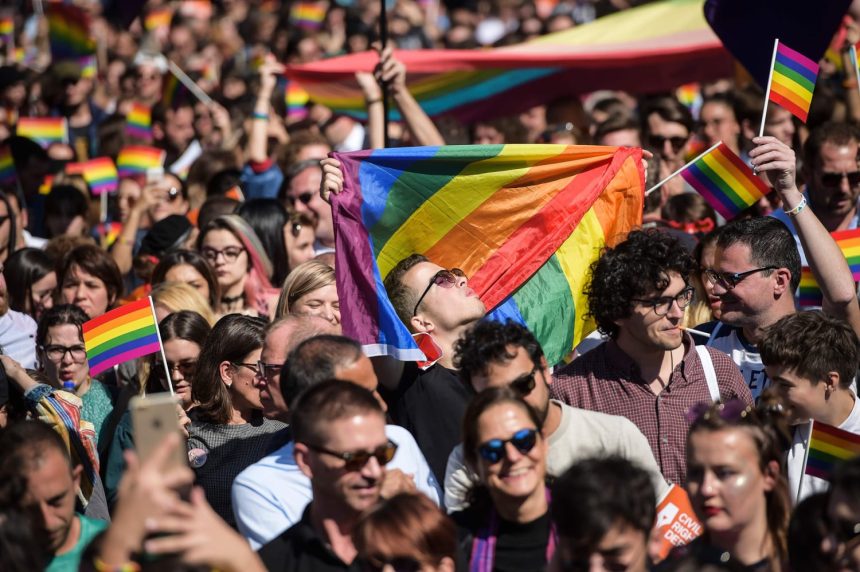There has been a significant lack of acceptance and inclusion for the LGBTQ community around the world. Despite some improvements in recent years surrounding enlightenment and tolerance, there is still an intricate web of cultural values that affect attitudes toward sexual orientation and gender identity. This article seeks to highlight the cultural values of LGBTQ ACROSS THE WORLD.
LGBTQ Acceptance and Cultural Values:
Cultural values have a great impact on the attitude towards the LGBTQ community. In various societies, traditional beliefs combined with customs continue to shape how people perceive and interact with lesbian, gay, bisexual, transgender, or queer individuals. For example, such things as same-sex relationships are seen as taboos or immoralities for some cultures consequently leading to widespread discrimination and marginalization.
Other cultures are more embracing when it comes to different sexual orientations as well as gender identities. Various indigenous cultures do not have two genders thus individuals are free to express themselves in ways that go against conventional gender norms. Additionally, some African communities view same-sex relations just like heterosexual relationships as part of human sexuality hence normalizing them.

Global Trends in LGBTQ Acceptance:
Ongoing snapshots give important insights into worldwide figures regarding the present status of LGBTQ acceptance across the globe. For example, according to a 2019 survey by Pew Research Center (PRC), 94% of people in Sweden believe that homosexuality should be accepted by society whereas only 7% hold this view in Nigeria (Pew Research Center). These wide differences demonstrate enormous disparities in social values and attitudes toward the LGBTQ community globally
Factors Influencing LGBTQ Acceptance:
Several factors influence variations in levels of global LGBTQ acceptance which include;
- Religious beliefs: In many societies, religious beliefs dictate attitudes toward the LGBTQ community today as they did centuries ago. As an illustration, for certain religious, faiths same-sex relationships are considered sinful or immoral resulting in extensive discrimination and marginalization since Religions are supposed to maintain and stable society, and everything should be bound by the moral compass. LGBTQ is unnatural and Odd.
For example: Homosexual Relationships.
- Cultural norms: Cultural norms are also a critical determinant of attitudes towards LGBTQ community members as different societies view them differently. While in some cultures homosexuality is an abomination or a mark of decadence, other societies see it as a natural part of human sexuality South Asians / Middle Eastern Cultures are perfect examples of it.
- Economic development: The economic status of any country can influence its take on LGBTQ issues as well. In developed countries, diverse sexual orientations as well as gender identities attract greater acceptance, whereas undeveloped nations have higher cases of discrimination against such groups.
- Political beliefs: Political ideology, too, can contribute to shaping the outlook towards the LGBTQ community. For example, in some nations, there might be a strong political force that advocates for the rights and acceptance of LGBTQ while in other countries these rights may be highly opposed. In India, many powerful people have played political games aimed at winning support from this group which has led to the legalization of Section 377 supporting LGTBQ activities across the country. Also, Other Western Countries employ this Kind of Politics to get power.
Strategies for Encouraging Change:
However, be used to encourage more accepting attitudes towards and inclusion of LGBTQ people although be surmounted.
These include:
- Education and awareness: Educating individuals about the LGBT community and increasing their knowledge about its challenges will foster acceptance and bring down walls between them.
- Policy changes: This would entail enacting laws protecting LGBT rights such as anti-discrimination policies or recognizing same-sex marriages among others.
- Community engagement: Additionally creating cohesive communities that embrace all sexual orientations is another way through which equality can be achieved.
- Media representation: Positive images of LGBTs are critical for fostering better understanding and acceptance levels within society.
Conclusion:
The acceptance of LGBTQ is an intricate matter influenced by cultural, religious, economic, and political factors among others. There are however various ways to help overcome them or support them as well as integrate gays into societies albeit with their own identities and selves having rights like any other person regardless of how they identify themselves sexually giving trans people equal rights like every other person, therefore let’s join hands together remove those barriers which make it difficult for us to understand each other so as we create an inclusive world where everyone feels welcome irrespective of their sexual orientation or gender because humanity is bigger than anything else since their existence should not be threatened but changes made on their behalf.










